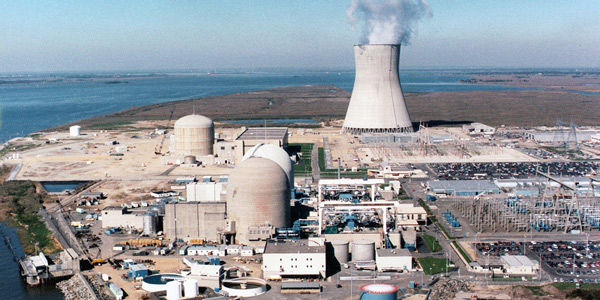By Rory D. Sweeney
Exelon and Public Service Enterprise Group will have to wait until the next session of the New Jersey Legislature for a vote on a bill to provide payments to the state’s nuclear fleet (S3560).
Several sources have confirmed that Rep. Vincent Prieto (D) declined to post the bill for a vote Thursday in one of his final acts as speaker of the Legislature’s lower house. The bill would provide upward of $300 million annually to operators of approved nuclear facilities for producing power.
PSEG has lobbied for the payments throughout the year, but the bill only materialized in December during Gov. Chris Christie’s lame duck session. Opponents — including business, consumer, environmental and power generation interests — feared it would be rushed through before Governor-elect Phil Murphy, a Democrat, takes office. (See NJ Nuclear Subsidy Bill Moves Swiftly out of Committee.)
PSEG has three nuclear reactors between the Salem and Hope Creek facilities, while Exelon owns 43% of the Salem units. PSEG says the units’ current profitability is attributable to sales hedges that expire within two years and that it will shut down the plants once they become unprofitable.
Opponents Cheer
Opponents cheered the news that the bill had stalled, calling it a victory for the state and praising Prieto, but keeping the door open for the issue to return later.
“Delaying action not only stands up to Chris Christie, it allows a new legislative session and a new governor to take the time necessary to carefully plan next steps and implement best practices if a bailout is needed,” Dale Bryk, chief planning officer at the Natural Resources Defense Council, said in an emailed statement. “It’s critical that any nuclear subsidies be done right so that New Jersey consumers, workers, communities and the environment are protected.”
“We applaud the Legislature for seeing through PSEG’s scare tactics and protecting our state’s future,” NJ Coalition for Fair Energy spokesman Matt Fossen said in an email. “The bottom line is that financial assistance should only be issued if it’s necessary, and the last few months proved that there was no reason to provide hundreds of millions of dollars to these already-profitable plants.”
The coalition, which includes Calpine, Dynegy, NRG Energy and the Electric Power Supply Association, on Wednesday released a sponsored economic study indicating the plants “have always been extremely profitable and will continue to be so through at least 2021 under current conditions.” The study foresees market rules changing and New Jersey returning to the Regional Greenhouse Gas Initiative “that will more than cover [the plants’] costs of production going forward” before the sales hedges roll off.
That study was performed by Energyzt, which last year produced a similar report showing that Dominion Energy’s Millstone nuclear plant in Connecticut would remain profitable into the next decade even without the state financial support being sought by the company. A Levitan & Associates study commissioned by Connecticut and released last month backed up that assessment. (See Millstone Likely Profitable Through 2035, Conn. Consultant Says.)
The Return of the Bill
But the New Jersey bill is likely to return in the next legislative session, NJ Spotlight reported, with new incentives for renewable and clean energy programs designed to win over current opponents who would stand to benefit.
Proponents aren’t giving up the fight and argue the issue needs to be addressed sooner rather than later.
“The fate of New Jersey’s nuclear generation is an urgent concern,” PSEG spokesman Michael Jennings said. “PSEG will continue to educate New Jersey’s legislators and policymakers on the economic threat facing the nuclear plants that serve our state — and the risk of increased air pollution, reduced resiliency, lost jobs and higher energy bills. These risks warrant greater attention.”



